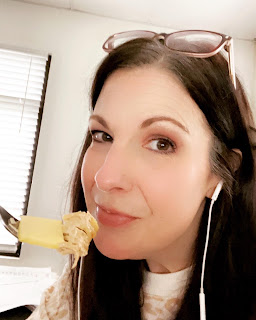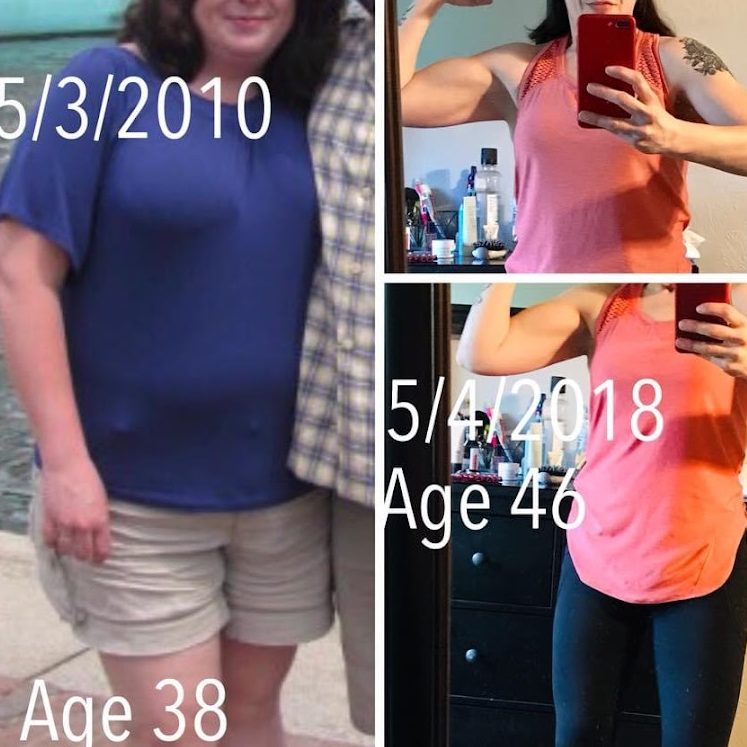

Food to Mask the Pain
What is comfort food? Does it truly bring comfort? Or does it bring more pain?
If we are talking about the traditional comfort foods, most of us think of cookies, ice cream, cake, macaroni & cheese, maybe pizza and other foods high in carbohydrates. There is a very scientific reason that we feel comfort when eating those types of food. People much smarter than I can explain all of that in detail and do so with absolute authority. But I can tell you that I have learned from those very smart people, and from my own experience, that these foods contain high amounts of carbs. Carbs turn to sugar in our bodies. Sugar creates a chemical response in our bodies and in our brains that trigger a dopamine response. It’s something very similar to getting high and that feeling, in turn, creates an addiction. Sweet taste is several times more addictive than cocaine. Read that again – sweet taste. is several times more addictive. than COCAINE! What? We give these foods to our children! We are literally raising addicts just by feeding them foods from our local grocery stores. (click here to read one study using artificial sweetener and cocaine, as an example – there are several articles on the matter, just search for yourself! Intense Sweetness Surpasses Cocaine Reward (nih.gov))
There is sugar, in some form, in most processed foods. I dare you to grab any food item in your kitchen with an ingredient label – guaranteed there is at least one form of sugar in that item. Maybe more. Sugar has over 50 different names, and food manufacturers will try to fool you as often as possible.
You hear a lot of people say they are an ’emotional eater’, meaning when they are sad, stressed, angry, happy, or any strong emotion, they turn to food. Rather than allowing themselves to feel that emotion, they distract themselves or use the food to cope or celebrate. Doesn’t that sound very similar to how a person with an addiction would respond? In my statement above, replace the phrase, “…they turn to food.” with “…they turn to alcohol.” Or a specific drug. Even when someone says they reward themselves with chocolate or some other food, isn’t that the same as saying they reward themselves with a drink or drug use?
The Culture of Food as a Drug
This behavior is something many of us are taught in childhood. A good-intentioned adult wants to fix what is bothering the child, or distract them from crying, by giving them a treat. This creates a dependency very early in life! Rather than being taught how to cope with or regulate emotions, children are often taught to just cover it up or use some substance, which may start out as sugar or carbs, to create a flood of dopamine in the brain that gives us that feeling of comfort. Maybe, just maybe, this is the beginning of what predisposes a person for drug or alcohol abuse? It makes sense to me. Eating becomes something that is tied to emotions, whether we are eating to celebrate or to mourn. The chemistry of the food creates such an intense reaction in the body that it mimics emotion or masks it. Processed food, carbs, and sweet tastes (yes, even your diet soda and keto sweeteners) give us that dopamine hit that is so strong that real joy and happiness can’t compete. Is this a cause of depression?
The problem is that – and I am not saying it is as simple as this – while lifestyle changes can be made to avoid drugs and alcohol, you can’t avoid food. You can avoid certain foods and ingredients, but it is SO difficult when family gatherings, social functions, and even office meetings often revolve around the very types of food you are trying to avoid. You hear things like, ‘oh come on live a little’, ‘one cupcake won’t kill you’, ‘you deserve a treat’….Would those food-pushers say to an alcoholic, ‘one shot won’t kill you’, or ‘it’s a celebration, how are you not going to drink?’ But most people don’t understand, because we need food to live, that sugar and processed foods are addictive.
Nutrition is the Key
I, and I think many others can attest to this, have found that eating only animal foods reduces or eliminates the addiction to sugar and carbs. Why is this important? Sugar and carbs are not what our bodies were designed to thrive on. The over-consumption of these foods creates constant insulin response, which affects our mood and emotional regulation. Without the constant dips and spikes in blood glucose, and therefore insulin, my mood is fairly constant. I don’t crave that dopamine release that food used to give me.
So do comfort foods really bring comfort, or do they replace true emotions with dopamine, thereby eliminating the processing of emotions and perpetuating the trauma, never allowing the healing or the development of coping skills? In my opinion, processed foods, carbs, and sugar do damage to our bodies and our minds. I know in my healing mission, my body feels so much better. But the healing I have experienced within my mind and my emotions is the most valuable result so far.
Feel free to comment or ask questions about my experiences and let me know if there is any way I can help you on your own healing mission!
xoxo
~ The Candid CarnivoreShareLabels: carnivorecomfort foodcommunitydietdisordered eatingdopamineemotional healthfood addictfood addictionmental healthsugar addiction









